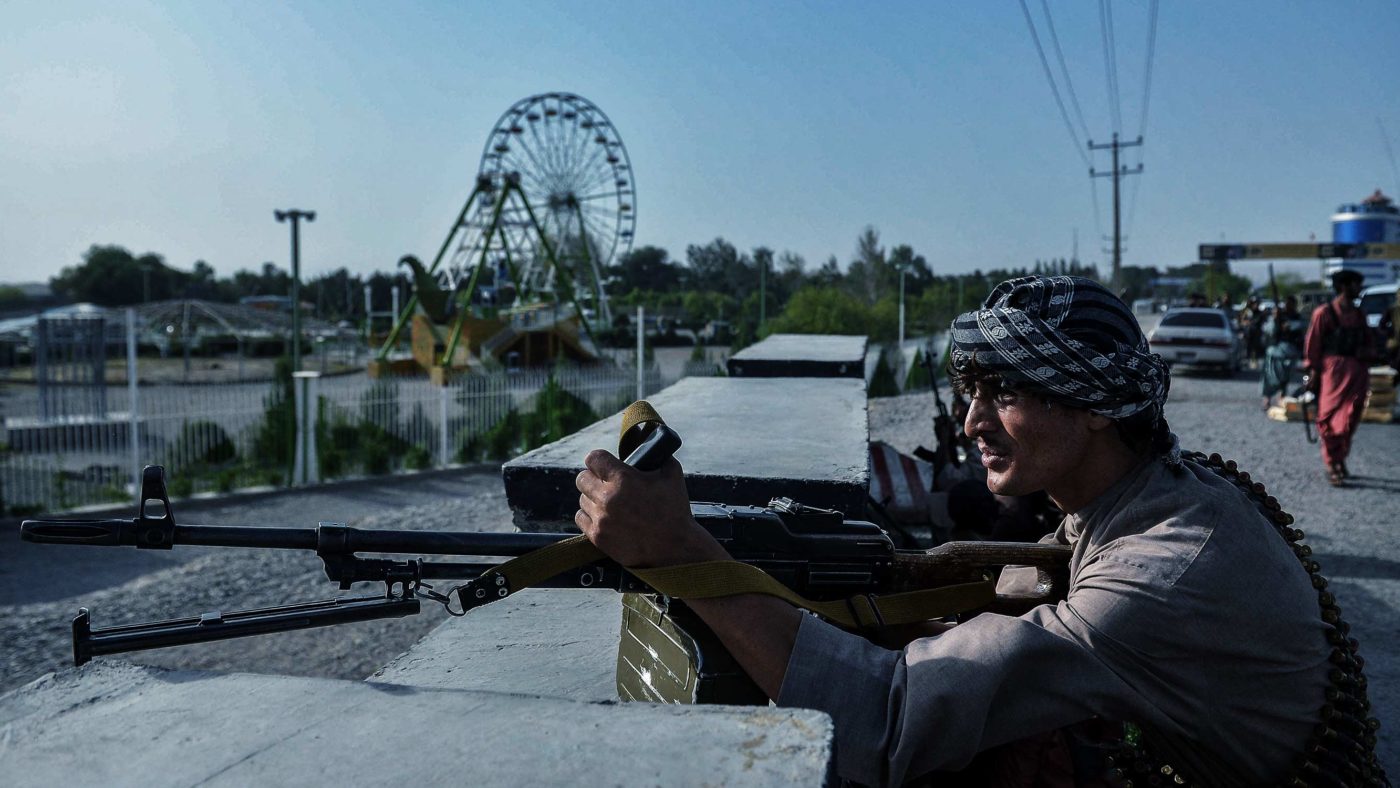As American and Nato troops have wound down their presence in Afghanistan, the pace of the Taliban’s advance has been remarkable. Since last Friday, the militants have captured five cities, including the regional capitals of Kunduz, Sar-e-Pul and Taloqan.
Other key cities have seen heavy fighting, including Herat – one of several Afghan cities where high-profile warlords are leading the fightback against the Taliban. Ismail Khan, a 75-year-old former governor of Herat province, is currently leading some 3,000 men alongside the Afghan security forces. It’s part of the ‘popular uprising’ strategy devised by Afghan defence minister Bismillah Mohammadi, where the army collaborates with local militias to fight the Taliban.
The Taliban’s advances have been followed by a wave of violence, and as the US’ presence in Afghanistan diminishes, the situation is likely to get worse. In fact, General Austin “Scott” Miller, the top US Commander in Afghanistan, has warned Afghanistan could tumble into a “chaotic civil war”.
Against this tumultuous backdrop, China and Russia are attempting to fill the void left by the West’s withdrawal. Last month China’s Foreign Minister, Wang Yi, received a delegation of Taliban officials in Tianjin, near Beijing. That meeting shows the Chinese view the Taliban as a key player in deciding the future of the country. Following the meeting, Zhao Lijian, the Chinese Foreign Ministry’s spokesperson called the Taliban a “pivotal military and political force” that will play a vital role in the “peaceful reconciliation and reconstruction in Afghanistan”.
While the talks are aimed at bolstering China’s regional credentials, Beijing has also expressed concern about the potential impact of terrorism in the western region of Xinjiang, which borders Afghanistan. Such concerns stem from the approximately 5,000 Chinese Uighurs (who are native to Xinjiang) who went to Syria to fight alongside Islamist militant groups in the mid-2010s. Indeed, Foreign Minister Wang emphasised during the meeting that the Taliban had to cut ties with the East Turkistan Islamic Movement, a Syria-based Islamist group that wants to establish an independent state, East Turkistan, in Xinjiang.
Russia also sees the US and Nato withdrawal as an opportunity to expand its influence and reinforce its own alliance. In late July, for instance, Moscow moved tanks towards the Tajikistan-Afghanistan border to conduct military drills aimed at shielding Tajikistan from the worst effects of a deteriorating Afghanistan. According to the Financial Times, Vladimir Putin views the US withdrawal as an opportunity for the Kremlin to regain the regional power and influence it enjoyed in the Soviet era, whilst becoming the security guarantor for most of the Eurasian continent.
Asserting its control over the region also offers a chance to expand Russia’s influence amongst Central Asian states through forums it controls. For example, Putin can use the Collective Security Treaty Organization (CSTO), an intergovernmental military alliance comprised of Armenia, Belarus, Kazakhstan, Kyrgyzstan, Tajikistan and Russia, and establish it as the regional security umbrella. In the likely scenario that the situation in Afghanistan gets worse, Putin can leverage the instability to present himself as a defence against emerging threats. The Russians may not be seeking the same kind of direct engagement as China, but they are positioning themselves to benefit from the lack of a Western presence in the region.
Russian and Chinese advances would be less of a concern if there were any confidence that US-backed peace talks might succeed – an outcome that would allow Washington to retain informal influence over various key players. At the moment that seems a dim prospect at best. Zalmay Khalilzad, President Biden’s special envoy for Afghanistan, has said the Taliban and Afghan government negotiators remain “far apart”. Although State Department spokesman Ned Price says the Taliban has an “inherent interest” in avoiding a prolonged civil war, the continued violence, including a bombing outside the home of the Afghan Defence Minister, suggests they won’t be laying down their arms any time soon.
Nor does there seem much hope on the part of the Afghan government. President Ashraf Ghani openly said the Taliban had “no intention and willingness to make peace” and although the Taliban has said it “favours a political settlement”, its actions suggest otherwise. And if, as seems increasingly likely, the talks do fail, it will only increase the opportunity for Russian and Chinese involvement in the region.
Every day that goes by it is becoming clearer that the Biden administration’s decision to withdraw its troops was an irresponsible and strategically misguided decision. This is especially true when the void created by the lack of American presence is filled by our adversaries in a region crucial to global security.
Click here to subscribe to our daily briefing – the best pieces from CapX and across the web.
CapX depends on the generosity of its readers. If you value what we do, please consider making a donation.


